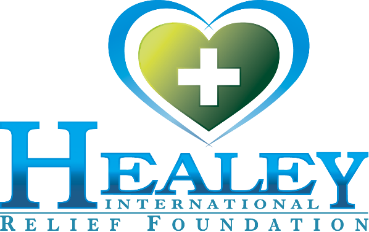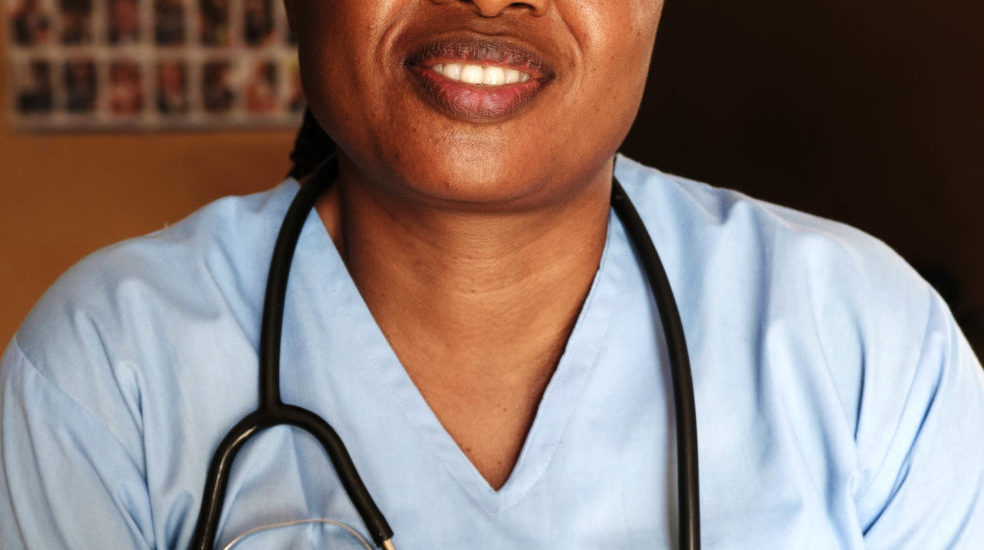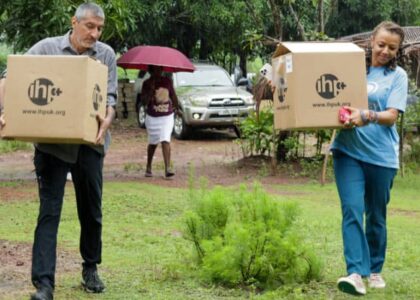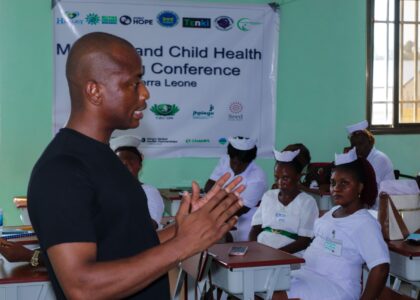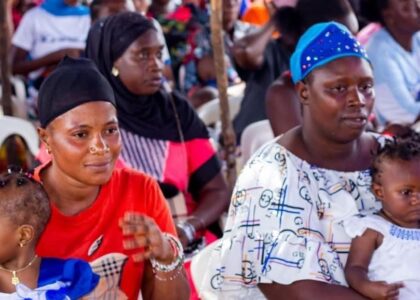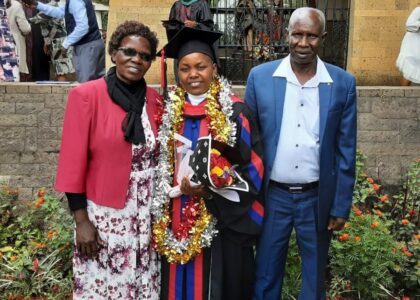The time is 6 am in Sierra Leone and Manjia Taylor is waking up to begin her day. She prepares her breakfast and then heads out to get an early start at the Monsignor Daniel Sullivan Health Clinic, which she oversees as the Community Health Officer. As an Officer of Community Health, it is Manjia’s duty to create a safe and welcoming environment at the Monsignor Sullivan Clinic for community members in Newton to comfortably access health services.
Monsignor Daniel Sullivan Health Clinic

One of HealeyIRF’s first projects in Sierra Leone was in the community of Newton supporting the St. Stephen’s Home for Amputees. Comprising mostly of those affected by the country’s ten year long civil war, amputees were often shunned from society because they were a reminder to others of the brutality and civil unrest the country faced. The St. Stephen’s home provided a safe-haven for these amputees, though healthcare and proper treatment for their war wounds was certainly not an option due to lack of services and funding. Monsignor Dan determined the best way to help this community was to build a healthcare clinic on site.
Unfortunately, Monsignor Dan Sullivan passed suddenly in 2013, less than a year after his initial visit to Sierra Leone. However, his labor was not in vain and thanks to his steadfast fundraising efforts, he was able to successfully raise almost the entire amount needed to build the structure. The Foundation honored all his determinations and opened the Monsignor Sullivan Health Clinic in March 2015. Opening at the height of the Ebola Virus epidemic, the clinic and its staff were thrust into immediate medial action. Providing primary, maternal, infant and child healthcare services as well as treatment for HIV/AIDS, malaria, typhoid and other infectious diseases, the clinic has seen thousands of patients within its catchment area.
Manjia very much enjoys working at the clinic and loves her interactions with the many patients that come for treatment. She hopes that healthcare in Sierra Leone will be improved upon and structured in a more efficient manner. Fortunately, Manja was able to take some time out of her very busy day to answer a few questions for us about her experience working as a Community Health Officer.
How did you begin working in Healthcare?
I became interested in a medical profession while in secondary school. I decided to attend the NJALA University in Sierra Leone to become a Community Health Officer (CHO). For three years, I took courses in community health and clinical sciences because I wanted to contribute to the health care systems and wellbeing of the people of my beloved country. I started as a volunteer for three years without salary at Gray Bush Hospital, Heart and Hand Care Hospital because I like the healthcare system and I want to save lives. I’ve been at Monsignor Daniel Sullivan Health Clinic since 2015 as the Community Health Officer. My responsibilities include administration, clinical functions with emphasis on maternal and infant/child healthcare and public health tasks.

Do you find there are many challenges or set backs to working in the health field in Sierra Leone?
There are many challenges facing Sierra Leone’s healthcare system. The majority of the medical facilities lack much needed resources, medicines and equipment like delivery kits, BP machine, thermometers, and suturing materials and so on. Many hospitals do not have functioning blood banks or proper laboratory tools. It is oftentimes difficult to work in these conditions and receive encouragement and/or enthusiasm from fellow staff if working conditions are poor.
Can you describe what the environment was like during the Ebola Virus outbreak in 2014?
The environment was somber during the Ebola Virus outbreak and people were very afraid of one another. In what once was a very loving demeanor amongst Sierra Leoneans, many people became frigid and cold in fear of the unknown. Handshakes and hugs stopped completely, markets and schools closed and the economy was negatively affected. Hospitals and clinics where not providing care for some patients because health workers were in fear for their own lives. At the same time, people would avoid the needed and urgent medical attention altogether in fear of being diagnosed with Ebola. Patients began to believe that we (Health Workers) were responsible for infecting them. The country began to lose so many people and they were dying in great numbers. Such an epidemic like Ebola worried us so much and caused us pain as we witnessed it first-hand without really being able to help properly those in need. We were afraid to act because of the lack of personal protection and strong susceptibility the virus brought forth.
We are very lucky to have Manjia as part of our Charity Health Network! Ensuring that there are adequate doctors and healthcare workers is a key factor in strengthening the health system in Sierra Leone. Our current program being supported by the Hilton Foundation to educate and develop a team of professional Catholic Sisters able to participate in management, operations and training of a charitable health system, including the production and distribution of medical products, will greatly aid this effort.
